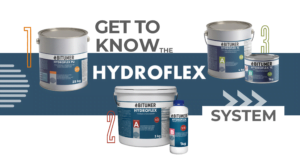⚙️ In the ever-evolving world of construction and infrastructure development, waterproofing plays a pivotal role in ensuring the longevity and durability of structures. Whether it’s a residential building, commercial complex, or an expansive bridge, safeguarding against water infiltration is paramount. Among the array of materials and techniques available, polyurethane-based products have emerged as a versatile and effective solution.
Polyurethane-Based Waterproofing
Polyurethane, a polymer composed of organic units joined by urethane links, exhibits exceptional properties that make it an ideal candidate for waterproofing applications. Its versatility stems from the ability to modify its formulation to suit specific project requirements, whether it involves sealing cracks, coating surfaces, or creating a protective membrane.
The Mechanism of Action
Polyurethane-based waterproofing products typically come in the form of liquid membranes or foams. When applied, they undergo a chemical reaction, transforming from a liquid state to a solid, impermeable barrier. This transformation ensures seamless coverage over irregular surfaces, filling gaps and crevices effectively. As the polyurethane cures, it forms a durable and flexible layer that withstands water ingress, UV exposure, and temperature fluctuations.
Applications Across Industries
The adaptability of polyurethane-based waterproofing extends across various sectors, including construction, infrastructure, and manufacturing. In building construction, it serves as a reliable solution for roofs, basements, balconies, and foundations, providing protection against moisture damage. In civil engineering projects, such as bridges, tunnels, and dams, polyurethane coatings offer long-lasting resilience against water and chemical exposure. Moreover, industries reliant on containment systems, such as wastewater treatment plants and chemical storage facilities, benefit from the impermeable nature of polyurethane membranes.
Advantages of Polyurethane Waterproofing
- Seamless Application: Polyurethane products can be applied seamlessly over a variety of surfaces, ensuring uniform coverage without joints or seams that could potentially become weak points.
- Flexibility: The inherent flexibility of polyurethane allows it to accommodate structural movements without compromising its integrity, making it suitable for dynamic environments.
- Chemical Resistance: Polyurethane-based coatings exhibit excellent resistance to chemicals, acids, and alkalis, making them ideal for industrial settings where exposure to harsh substances is prevalent.
- Durability: With proper application and maintenance, polyurethane waterproofing systems offer long-term durability, reducing the need for frequent repairs and replacements.
- Fast Curing Time: Many polyurethane formulations feature rapid curing times, allowing for expedited project timelines and minimizing downtime.
Environmental Considerations
While polyurethane-based products offer remarkable performance in waterproofing applications, it’s essential to address environmental considerations. As with any construction material, proper handling, disposal, and adherence to environmental regulations are imperative. Additionally, advancements in eco-friendly formulations and sustainable practices are continuously evolving to minimize the ecological footprint associated with polyurethane usage.
In the realm of waterproofing, polyurethane-based products stand out as a versatile and reliable solution, offering seamless application, durability, and flexibility across a myriad of applications. As the construction industry continues to innovate and adapt to evolving challenges, the role of polyurethane in safeguarding structures against water ingress remains indispensable. By harnessing the inherent properties of polyurethane and embracing sustainable practices, the industry can pave the way towards a future where waterproofing solutions are not only effective but also environmentally conscious.

